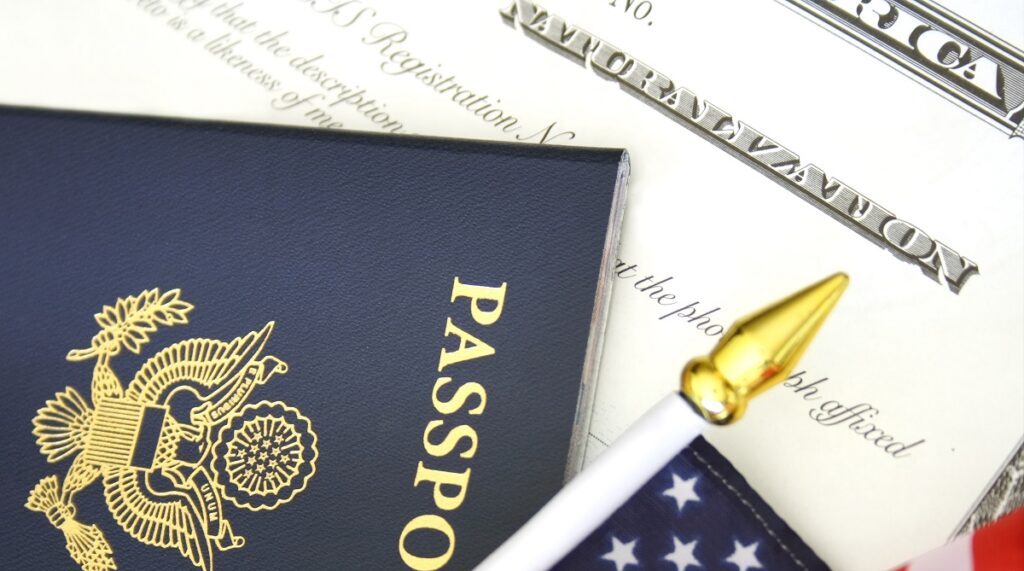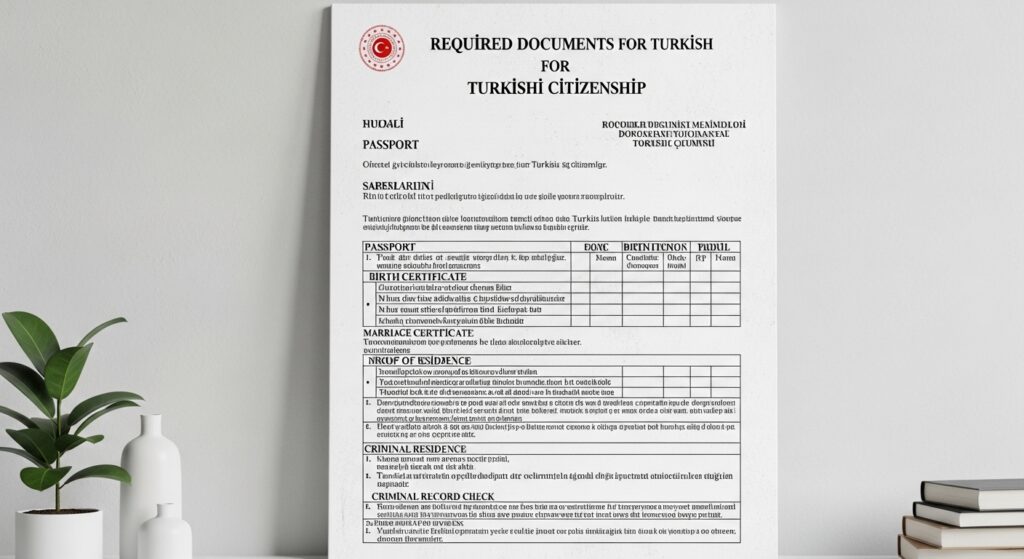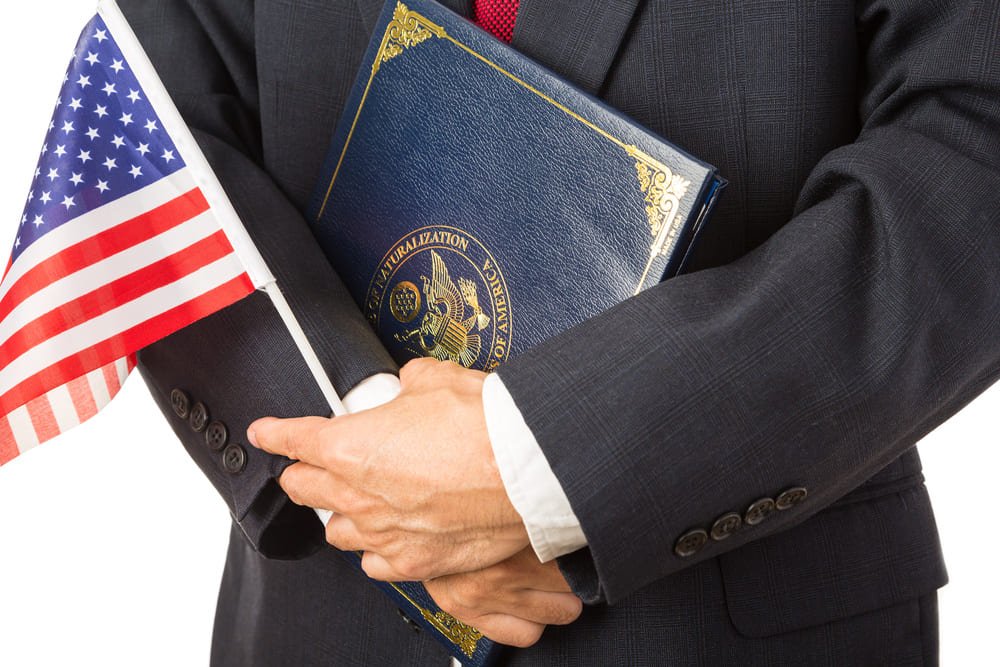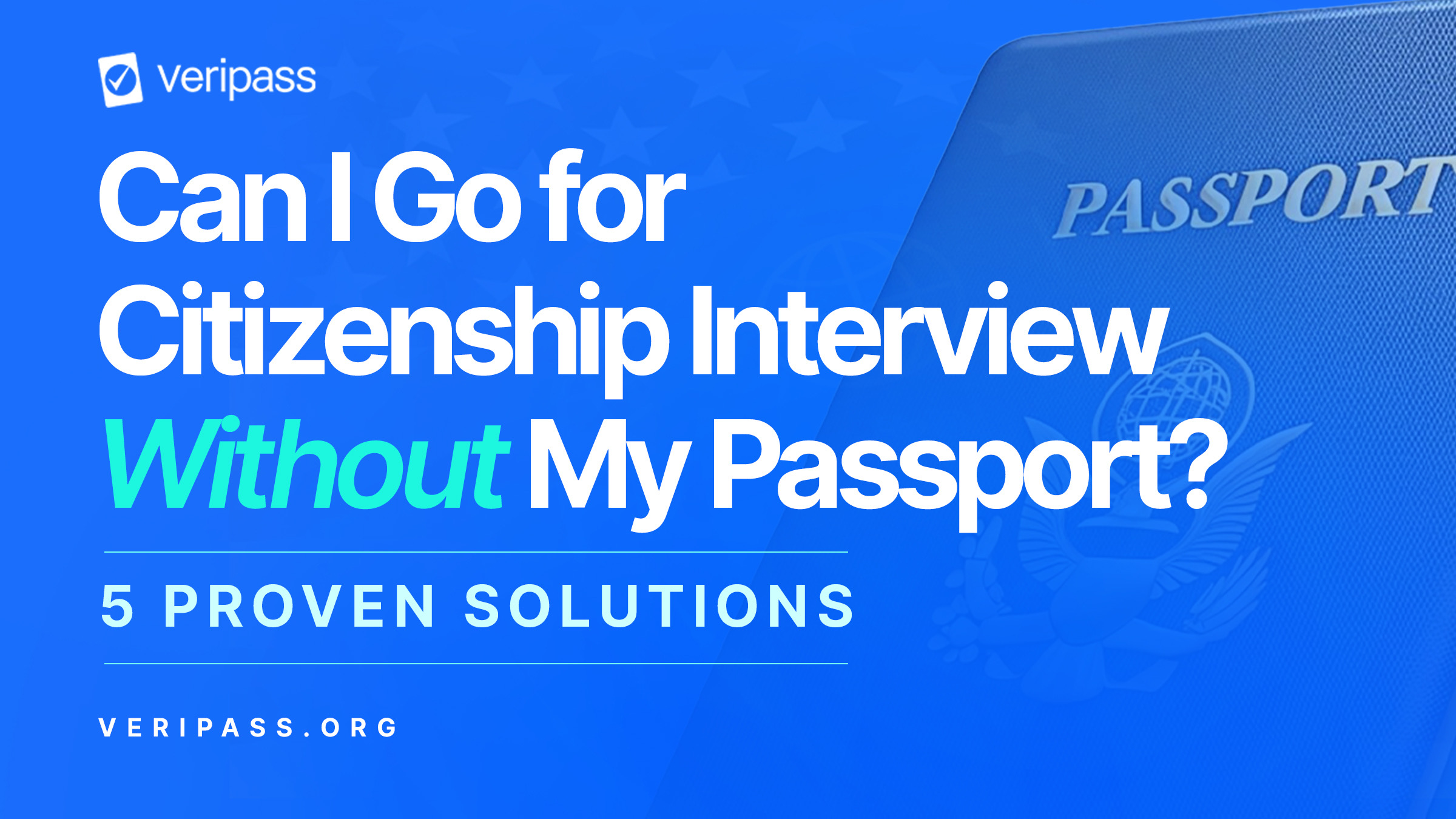Can I go for citizenship interview without my passport? Let me be straight with you: showing up without your passport is not a good idea. USCIS requires it, and walking into that interview room without it creates problems you don’t need.
But here’s what nobody tells you: there are legitimate reasons why you might not have your passport, and there are ways to handle this situation. You’re not the first person to face this, and you won’t be the last.

This article breaks down exactly what happens if you can’t bring your passport to your citizenship interview, what your options are, and how to handle the situation without derailing your entire naturalization process.
Read Also: What to Wear to Citizenship Interview: 7 Winning Secrets
What USCIS Actually Requires at Your Citizenship Interview
USCIS is clear about what you need to bring. Your passport is listed at the top under “travel records.” They want to see:
- Your current passport
- All expired passports
- Any travel documents USCIS issued to you
They’re not asking for these documents to make your life difficult. They need to verify your travel history. When you applied for citizenship, you listed every trip you took outside the United States since becoming a permanent resident. Your passport stamps back up those claims.
Can I go for citizenship interview without my passport when USCIS explicitly requires it? The technical answer is no. But the practical answer is more complex.
Why USCIS Needs Your Passport
Your passport tells a story. It shows where you went, when you left, and when you came back. USCIS uses this information to verify you meet the continuous residence requirement.
To qualify for citizenship, you must have lived in the U.S. continuously for a specific period, typically five years if you hold a green card or three years if you’re married to a U.S. citizen. Continuous doesn’t mean you never left. It means you didn’t abandon your residence here.
If you took a trip that lasted six months or longer, USCIS needs to see proof of that. If you listed ten trips on your N-400 application but your passport shows fifteen, they’ll want to know why. Missing stamps raise questions. Questions create delays.
Your passport also confirms your identity. It’s an official government document that matches your application. USCIS takes identity verification seriously.
Common Situations Where You Don’t Have Your Passport
You Never Had a Passport
Some people come to the U.S. and never leave. Maybe you came as a refugee. Maybe you got your green card through family sponsorship and never traveled internationally. You’ve lived here for years without needing a passport.
Can I go for citizenship interview without my passport if I have never had one? This situation is different from losing a passport or having it expire. If you genuinely never traveled, you need to document that fact.
Your Passport Was Lost or Stolen
Life happens. Passports get lost. They get stolen. Sometimes they disappear during a move or end up in storage somewhere you can’t access.
Your Home Country Won’t Renew Your Passport
This is more common than you’d think. Some countries make it extremely difficult or expensive to renew passports for citizens living abroad. Others have political situations that complicate the process. Some people fled their home countries and don’t want to engage with their former government.
Your Passport Expired Years Ago
You got your green card, settled into life in the U.S., and your passport expired. You didn’t travel, so you didn’t renew it. Now you’re applying for citizenship and realize you need it for the interview.
You’re in the Middle of Renewing Your Passport
Maybe you sent your passport to your home country’s embassy for renewal. Maybe the process is taking months. Your citizenship interview is scheduled, but you don’t have your physical passport in hand.
What Happens If You Show Up Without Your Passport
Let’s be clear about this: can I go for citizenship interview without my passport and still get approved? Probably not on the spot.
Here’s what typically happens:
The USCIS officer will ask for your passport. When you don’t have it, they’ll ask why. Your explanation matters. If you say “I forgot it at home,” that’s different from “I never had one” or “it was stolen six months ago, and I have a police report.”
The officer might:
- Continue with parts of the interview that they can complete
- Ask you questions about your travel history
- Request that you provide the passport later
- Reschedule your entire interview
In most cases, they won’t approve your citizenship application that day. They need the passport documentation to complete their review. This means delays. How long? That depends on your USCIS office’s schedule and how quickly you can provide what they need.
The officer will likely give you a list of documents to submit. You’ll need to mail them within a specific timeframe, usually 30-90 days. If you don’t submit the documents, USCIS can deny your application.
How to Handle Not Having Your Passport
Don’t wait until the day of your interview to figure this out. As soon as you realize you don’t have your passport, take action.
- If your passport was lost or stolen, get a police report immediately. This document documents what happened and when. Contact your home country’s embassy or consulate and request a replacement passport or a letter explaining why they can’t issue one. File for a replacement passport as soon as possible. Even if it won’t arrive before your interview, starting the process shows USCIS you’re taking this seriously.
- If you have never had a passport, you need to explain why. If you came as a refugee, gather your refugee documentation. If you never traveled, prepare to explain that clearly. Consider getting a sworn affidavit, a written statement you sign in front of a notary, explaining you never possessed a passport and never traveled internationally since becoming a permanent resident.
- If your home country won’t issue you a passport, get documentation from the embassy or consulate explaining this. A letter on official letterhead stating they cannot or will not issue you a passport helps your case. Document any political asylum status or other reasons why you can’t obtain a passport from your home country.
- If your passport is being renewed, get a receipt or tracking information from the embassy showing you submitted your passport for renewal. Get an estimated completion date in writing if possible. Bring any expired passports you have, even if your current one is unavailable.
- Reschedule Your Interview: Can I go for citizenship interview without my passport, or should I reschedule? If you know you won’t have your passport, rescheduling might be your best option. USCIS allows you to reschedule your citizenship interview. You need a good reason, and not having the required documents does not qualify. Contact USCIS as soon as you know there’s a problem.
To reschedule, write to the USCIS office that scheduled your interview. Explain why you need to reschedule and when you expect to have the necessary documents. Send this letter well before your scheduled interview date.
Keep copies of everything you send. Use certified mail so you have proof USCIS received your request.
Rescheduling adds time to your process. But showing up unprepared adds more time and creates a negative record in your file.
Bonus Points
Bring Alternative Documentation: If you absolutely cannot get your passport before your interview, bring everything else that proves your travel history and identity.
Bring:
- Boarding passes from flights you took
- Stamped entry/exit documents from other countries
- Employment records showing when you were in the U.S.
- Tax returns for every year since you became a permanent resident
- School records if you were studying
- Medical records showing appointments in the U.S.
- Bank statements showing transactions in the U.S.
- Any correspondence with your home country’s embassy about your passport situation
- Police reports if your passport was stolen
- Old expired passports even if they’re not current
The more documentation you bring, the better. You’re trying to create a complete picture of your time in the U.S. without the passport.

Prepare a Written Explanation
Write a clear, simple explanation of why you don’t have your passport. Keep it factual. Don’t make excuses.
Your explanation should include:
- What happened to your passport (or why you never had one)
- When the situation occurred
- What steps have you taken to resolve it
- What alternative documentation are you providing
Have this typed and printed. Bring multiple copies, one for the officer and extras for your records.
Special Circumstances That Affect Passport Requirements
Asylees and Refugees
If you came to the U.S. as a refugee or received asylum, your situation is different. Many refugees and asylees don’t have passports from their home countries. Some fled persecution and cannot safely contact their former government.
USCIS understands this. They have procedures for handling citizenship applications from asylees and refugees who don’t have passports.
You should still bring:
- Your refugee travel document (if you have one)
- Your asylum approval notice
- Any re-entry permits USCIS issued to you
- Documentation of your refugee or asylee status
Can I go for citizenship interview without my passport if I’m a refugee? Yes, but you need to clearly document your refugee or asylum status and bring alternative evidence of your identity and travel history.
You Never Traveled Outside the U.S.
Some green card holders never leave the United States after arriving. If this is you, and you never obtained a passport, you need to make that clear.
The challenge is proving a negative. How do you prove you didn’t travel? You can’t show stamps in a passport you don’t have.
Bring documentation showing continuous presence in the U.S.:
- Employment records for your entire time as a permanent resident
- Lease agreements or mortgage documents showing you lived here
- Utility bills spanning the entire period
- Tax returns
- Children’s school records
- Medical records
A pattern of continuous, documented presence in the U.S. helps establish that you didn’t travel.
How Your Immigration Path Affects This Situation
If you came to the U.S. through an O-1 visa or EB-2 NIW pathway, you likely maintained careful documentation throughout your immigration process. This same attention to detail matters now.
People who came through O-1 visas, the visa for individuals with extraordinary ability, typically traveled internationally for work. Conferences, projects, collaborations. Your passport should reflect this.
EB-2 NIW (National Interest Waiver) applicants often include researchers, professionals, and entrepreneurs whose work benefits the United States. Your work might have required international travel for research, partnerships, or projects.
If you came through these pathways, your passport is particularly important. It shows the international nature of your work and confirms the travel you listed on your N-400.
Can I go for citizenship interview without my passport if I came through O-1 or EB-2 NIW? The same rules apply, but USCIS might pay closer attention to your travel history, given the international nature of the work that qualified you for these visas.
Why Your Immigration Documentation Journey Matters
Getting your O-1 or EB-2 NIW approved required extensive documentation. You proved your extraordinary ability or your work’s national importance. You gathered letters of recommendation, evidence of your achievements, and proof of your qualifications.
That same thoroughness matters now. Your citizenship application is the final step in your immigration process. The work you put into documenting your O-1 or EB-2 NIW case should carry forward to this stage.
This is where proper preparation from the start makes a difference. Services like Veripass help high-achieving professionals prepare their O-1 and EB-2 NIW petitions with detailed documentation that creates a strong foundation for their entire immigration file.
When your initial visa petition is well-documented, you create fewer problems down the line. If USCIS has questions about your history years later during your citizenship application, they can reference your well-documented visa petition.
Veripass works with professionals navigating O-1 and EB-2 NIW petitions, focusing on building cases that stand up to USCIS scrutiny. Their approach emphasizes organizing evidence, gathering strong recommendation letters, and presenting your qualifications clearly, habits that serve you throughout your immigration experience.
If you’re still in the O-1 or EB-2 NIW stage and haven’t reached citizenship yet, now is the time to develop good documentation habits. Years from now, when you apply for citizenship, you’ll benefit from maintaining organized records.
Want to understand more about navigating the O-1 and EB-2 NIW process with proper documentation? Watch this webinar that breaks down how high-achieving professionals successfully handle their immigration petitions.
What If You Already Scheduled Your Interview and Don’t Have Your Passport?
You’re reading this article because your interview is coming up and you don’t have your passport. Can I go for citizenship interview without my passport when it’s scheduled for next week?
Here’s what to do right now:
Immediate actions (do these today):
- Contact the USCIS office where your interview is scheduled
- Explain your situation and ask for guidance
- Start gathering alternative documentation
- If your passport is obtainable (even with effort), make every attempt to get it
This week:
- Request a reschedule if necessary
- Get police reports if your passport was stolen
- Contact your embassy if you need passport replacement documentation
- Organize all alternative documentation you can gather
- Write your explanation letter
Before your interview (rescheduled or original):
- Make copies of everything you’re bringing
- Organize documents chronologically
- Practice explaining your situation clearly and calmly
- Bring multiple forms of ID beyond just your passport
- Arrive early and be prepared to wait
How Long This Actually Takes
Can I go for citizenship interview without my passport and still get citizenship quickly? No. Not having your passport creates delays.
Here’s a realistic timeline:
If you reschedule your interview, you’re looking at 2-6 months for a new interview date, depending on your USCIS office’s backlog.
If you attend without your passport and submit documents later, USCIS typically gives you 30-90 days to provide documents. After you submit them, allow another 2-4 months for review and a decision.
If you need to get a replacement passport first, Embassy passport processing takes 4-12 weeks for most countries. Emergency processing costs more but takes 1-3 weeks.
Add these timelines together if you’re starting from scratch. From “I don’t have my passport” to “I’m a U.S. citizen” could take 6-12 months longer than planned.

Common Mistakes That Make Things Worse
Don’t do these things:
Lying about your travel history: Some people panic and claim they never traveled when they did. USCIS can access databases that show border crossings. Getting caught in a lie can result in denial and potentially affect your green card status.
Showing up without explanation: Don’t just arrive at your interview empty-handed and hope for the best. Bring documentation and a clear explanation.
Ignoring the problem: Hoping USCIS won’t notice or won’t care doesn’t work. They will notice. They will care.
Providing fake documents: Never provide fake passports or altered documents. This is fraud. It can result in criminal charges, denial of citizenship, and deportation.
Failing to respond to USCIS requests: If USCIS asks for additional documents after your interview, respond by the deadline. Missing deadlines can result in automatic denial.
When to Seek Professional Help
Can I go for citizenship interview without my passport, or do I need a lawyer?
Consider consulting an immigration attorney if:
- Your situation is complex (criminal history, previous immigration violations, complicated travel history)
- You’ve been denied citizenship before
- You’re not sure how to document your situation
- USCIS has asked for documents you don’t understand
- You’re facing potential issues with your green card status
- Your passport situation involves sensitive political issues with your home country
Attorney fees vary; some attorneys offer free initial consultations. This investment might save you months of delays and stress.
The Bottom Line: Can You Really Go Without Your Passport?
So, can I go for citizenship interview without my passport?
Technically, you can walk into the interview room. Nobody will stop you at the door. But you won’t get approved that day. You’ll create delays, potentially significant ones.
The better question is: should you go to your citizenship interview without your passport? Only if you’ve exhausted every other option and you bring extensive alternative documentation plus a clear explanation.
The best approach is to have your passport. If you can’t have it, reschedule until you can. If you absolutely can’t get it, be prepared with overwhelming evidence of your identity and travel history.
Your citizenship application is too important to gamble on. You’ve come this far in your immigration process, from your initial visa through your green card to this final step. Don’t let something as fixable as a missing passport derail your American dream.
Take this seriously. Start solving the problem now. Don’t wait until the day before your interview. Can I go for citizenship interview without my passport and just hope for the best? No. Hope isn’t a strategy. Documentation is.
Get your passport if you can. If you can’t, document why. Either way, be prepared to prove your case. That’s what USCIS requires, and that’s what will get you across the finish line to U.S. citizenship.
Do I need to send my passport for citizenship application?
No, you don’t send your actual passport with your citizenship application (Form N-400). You only need to include a photocopy of your green card (front and back) when you mail your N-400. You bring your physical passport to your citizenship interview later in the process. Keep your passport with you during the entire application process since you’ll need it for the interview. The only exception is if you need to send your passport to your home country’s embassy for renewal, but try to time this so you have it back before your interview date.
Do I need my passport for my citizenship interview?
Yes, you need your passport for your citizenship interview. USCIS requires both your current passport and all expired passports as part of your travel records. They use these documents to verify the travel history you listed on your N-400 application and confirm you meet the continuous residence requirement. If you don’t have your passport, you should either reschedule your interview or bring extensive alternative documentation along with a written explanation of why you don’t have it. Without your passport, USCIS will not approve your citizenship on the spot.
What documents do I need to bring for my citizenship interview?
You must bring your green card, state-issued ID (driver’s license or state ID), all passports (current and expired), and your interview appointment notice. If you’re currently married or were previously married, bring original marriage certificates, divorce papers, annulment certificates, or death certificates. You also need any documents related to name changes and complete travel records, including USCIS-issued travel documents. If you’ve ever been arrested or had legal issues, bring arrest records, court dispositions, and sentencing documents, even if the case was dismissed or expunged. Bring originals or certified copies of these documents, not just photocopies.
Can I attend a US visa interview without a passport?
No, you cannot attend a US visa interview without a valid passport. A visa interview at a US embassy or consulate requires you to present a valid passport because the visa itself gets stamped or placed inside your passport. This is different from a citizenship interview. For visa interviews, your passport must be valid for at least six months beyond your intended stay in the US. If your passport is expired, lost, or about to expire, you must get it renewed or replaced before scheduling your visa interview. The embassy will not proceed without a valid passport.
